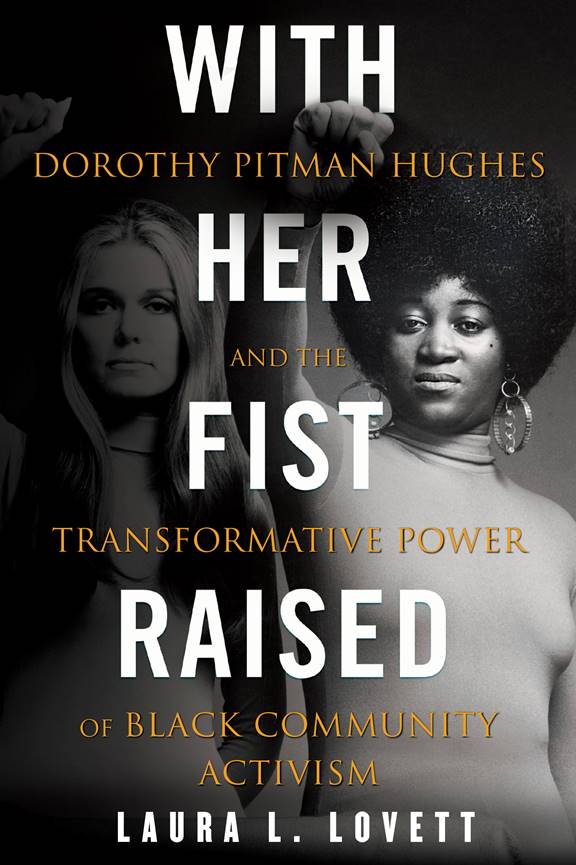 Dorothy Pitman Hughes was a transformative community organizer in New York City in the 1970s, who shared the stage with Gloria Steinem for five years, captivating audiences around the country. After leaving rural Georgia in the 1950s, she moved to New York, determined to fight for civil rights and equality. Lovett traces Pitman Hughes' transformation into a powerhouse activist determined to take on the needs of her community and build a platform for empowerment. She created lasting change by revitalizing her West Side neighborhood, a community subjected to racial discrimination, with nonexistent childcare and sub-standard housing, in which poverty, drug use, lack of job training, and the effects of the Vietnam War were evident She imagined and then created a high quality child care center which also offered job training, adult education classes, a Youth Action corps, housing assistance and food resources. Pitman Hughes' realization that the area could be revitalized by actively engaging and including the community was prescient and is startlingly relevant. As her stature and influence grew to a national level, Pitman Hughes went from the West Side to spending several years traversing the country with Steinem and educating people about feminism, childcare, and race. Pitman Hughes's community activism was transformed when she moved to Harlem in the 1970s to counter gentrification. She bought the franchise to the Miss Greater New York City pageant in order to demonstrate that black was beautiful. She also opened an office supply store and became a powerful voice for Black women entrepreneurs and Black-owned business only to be thwarted by plans for economic development that favored national chains over local businesses. Throughout every phase of her life, Pitman Hughes' understood the transformative power of activism with the Black community.
Dorothy Pitman Hughes was a transformative community organizer in New York City in the 1970s, who shared the stage with Gloria Steinem for five years, captivating audiences around the country. After leaving rural Georgia in the 1950s, she moved to New York, determined to fight for civil rights and equality. Lovett traces Pitman Hughes' transformation into a powerhouse activist determined to take on the needs of her community and build a platform for empowerment. She created lasting change by revitalizing her West Side neighborhood, a community subjected to racial discrimination, with nonexistent childcare and sub-standard housing, in which poverty, drug use, lack of job training, and the effects of the Vietnam War were evident She imagined and then created a high quality child care center which also offered job training, adult education classes, a Youth Action corps, housing assistance and food resources. Pitman Hughes' realization that the area could be revitalized by actively engaging and including the community was prescient and is startlingly relevant. As her stature and influence grew to a national level, Pitman Hughes went from the West Side to spending several years traversing the country with Steinem and educating people about feminism, childcare, and race. Pitman Hughes's community activism was transformed when she moved to Harlem in the 1970s to counter gentrification. She bought the franchise to the Miss Greater New York City pageant in order to demonstrate that black was beautiful. She also opened an office supply store and became a powerful voice for Black women entrepreneurs and Black-owned business only to be thwarted by plans for economic development that favored national chains over local businesses. Throughout every phase of her life, Pitman Hughes' understood the transformative power of activism with the Black community.
"With Her Fist Raised is a testament to the impact, diversity, and reach of African American women’s leadership and activism. Guided by Lovett's careful and thorough research, this story of Dorothy Pitman Hughes's life enhances the way we understand intersectional activism and social movements in the United States through her fight for civil rights, community empowerment, and childcare. She emerges from the shadow of Steinem as a force in her own right." —Francoise Hamlin, author of Crossroads at Clarksdale: The Black Freedom Struggle in the Mississippi Delta after World War II